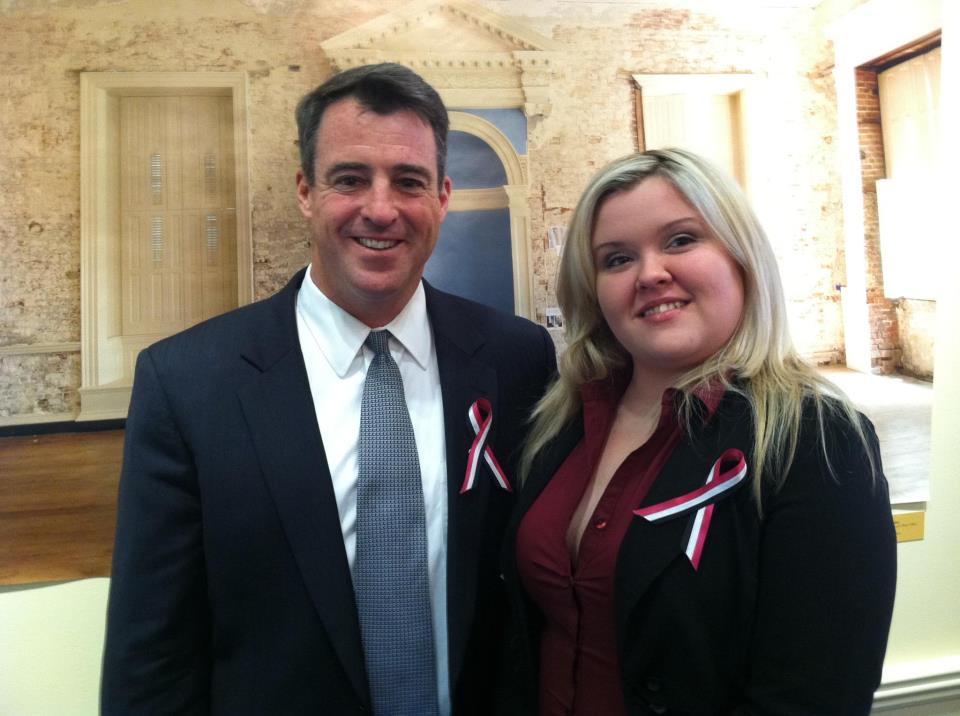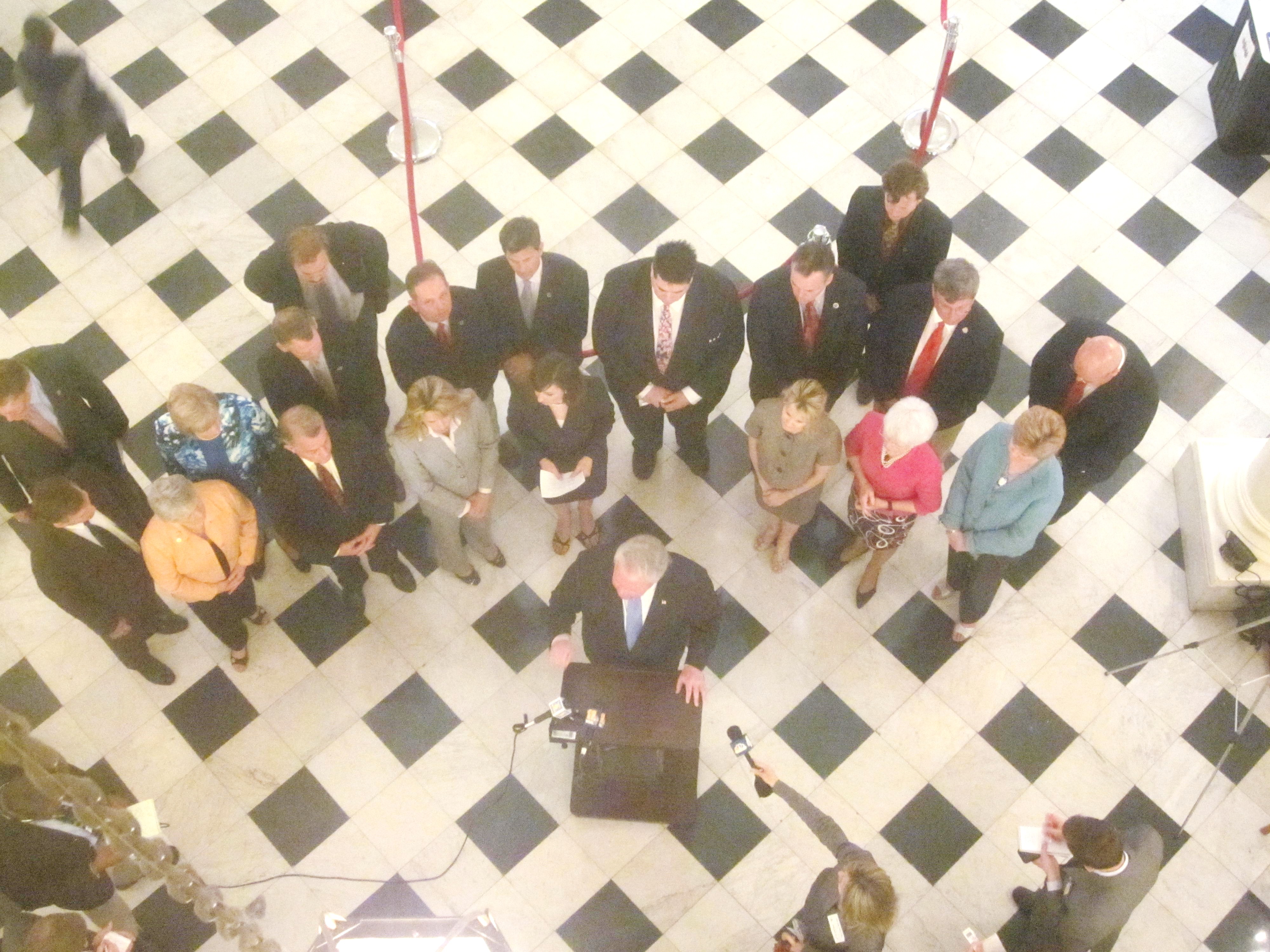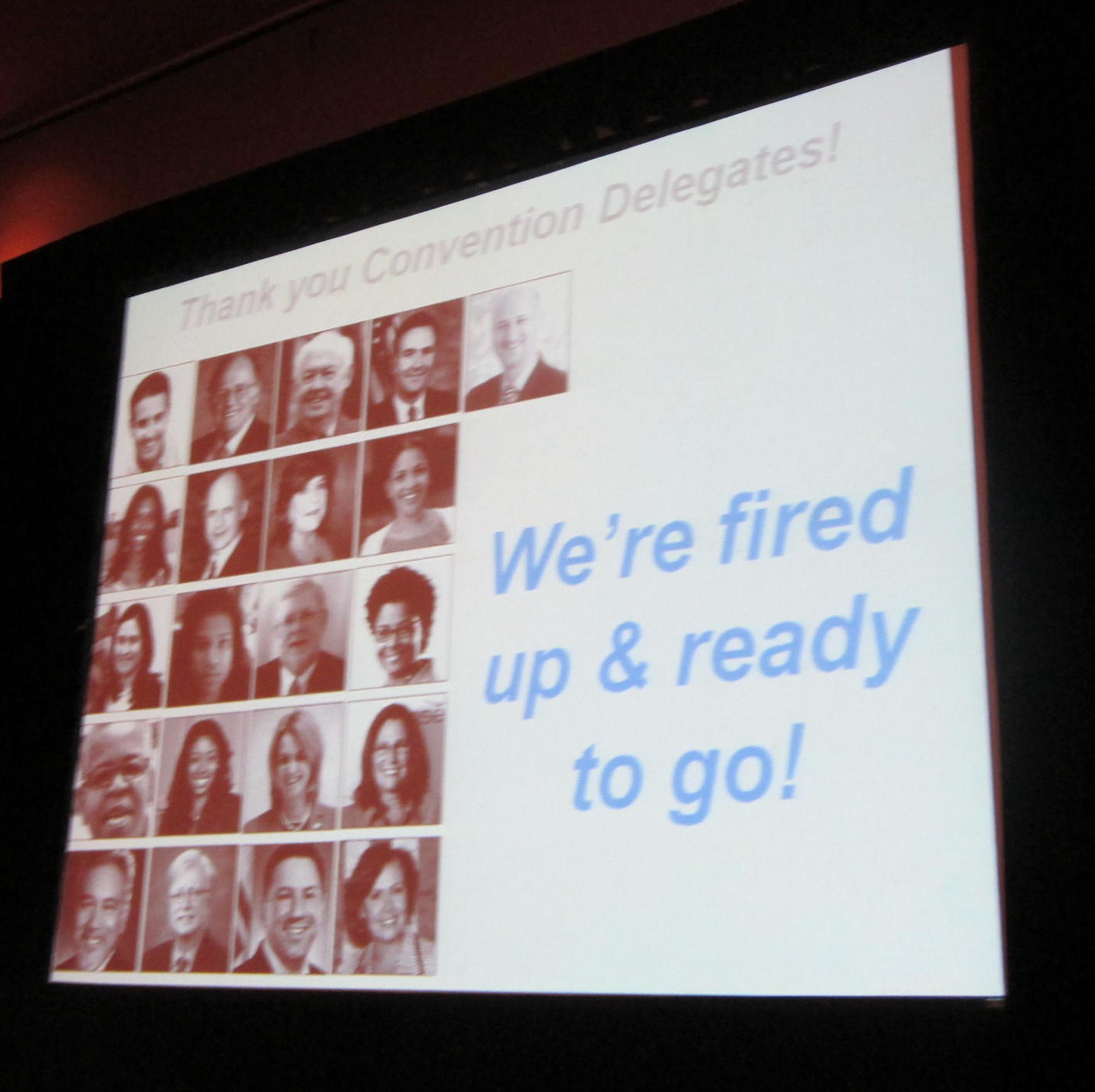By Daniel Menefee
Dan@Marylandreporter.com
Doubling the flush tax to $60 a year is one of the revenue increases Gov. Martin O’Malley proposed Wednesday in his fiscal 2013 budget.
Revenue from the tax goes into the Chesapeake Bay Restoration Fund to upgrade sewage treatment plants. Money from septic system users is also used to upgrade some of those systems and pay for cover crops.
The new money is needed because the upgrades have cost more than originally estimated.
When asked if flush tax revenues would again be transferred to the general fund, which received $90 million from the Bay Restoration Fund in the current fiscal year, O’Malley initially denied that money had been transferred.
“I don’t believe that we’ve ever taken a dime out of the flush tax in the history of it,” said O’Malley at the Wednesday news conference. He referred to the fund’s website, which tracks the progress of upgrades to sewage treatment plants.
When pressed again about last year’s transfer out of the Bay Restoration Fund, O’Malley acknowledged that the $90 million transfer was replaced with bonds, but that the swap did not reduce the impact of the money.
“We swapped for bond dollars,” O’Malley said. “In other words, taking the cash but putting back with bond dollars. …There was not a deviation of effort or a bait and switch situation where $10 was supposed to go to [projects] and only $8 did.”
Eastern Shore delegates react
There is currently a bill gaining sponsors in the House to “lock designated funds and create a more stringent litmus test to transfer money out, like a national emergency or act of war,” said Del. Michael McDermott, R-Wicomico and Worcester. “It tightens down the ability to move designated funds.”
Delegate Jay Jacobs, R-Kent, said that the full tax on well and septic users targets many rural Marylanders, who have little impact on nutrient run-off into the Bay.
“There is a huge amount of nutrient runoff coming from waste water treatment plants, which the Bay Restoration Fund was supposed to fix,” Jacobs said. “If you added all the pollution coming from well and septic on the shore, it wouldn’t add up to 8% of the total runoff.”
But O’Malley has cited other figures showing that septic seepage into ground water and streams is the fasting growing source of nutrients to the bay watershed.
Jacobs said that the problem is coming from sewage treatment plants ‘that have not received the full benefit of fund.”
“If the state is using bonds instead of cash, where are the upgrades,”Jacobs asked. He said there were 740 overflows from sewage plants in Maryland on 2011.
Progressive tax a possibilty
O’Malley indicated that a progressive flush tax was in the works for this session to promote conservation and give relief to Marylanders who use less water. He said that it was unfair for smaller homes to pay the same flush tax as mansions.
However, there is no escape from the full tax for homes with wells and septic system because their water is not metered, O’Malley said. But waivers are currently available for Marylanders experiencing financial hardship whether they are metered or on septic.
Chesapeake Bay Foundation (CBF) Maryland Executive Director Alison Prost said in a statement that doubling the flush tax may not go far enough to meet pollution reduction goals and called for a larger increase in the flush tax or enacting a storm water utility fee.
“We have made progress,” Prost said. “But closed swimming beaches, dead zones and other signs indicate the Chesapeake Bay is still a system dangerously out of balance. We can’t rest on existing pollution reduction programs alone.”
On the issue of safeguarding designated funds, O’Malley said that “the best way to safeguard investments in special funds is to be honest about the operating fund, including those times you have have to ask people, regrettably, to pay a little more.”







BALTIMORE HAS ALREADY ADDED 9% OR MORE EACH YEAR FOR THE PAST SEVERAL YEARS..TO OUR WATER BILL……. PLUS THE FLUSH TAX, NOW AGAIN ANOTHER FLUSH TAX……..I DOUBT THE GOVENOR AND THE ASSEMBLY WORRY ABOUT THE WATER BILL EVERY TIME THEY FLUSH THE TOILET OR TAKE A SHOWER. WATER IS A BASIC FOR HEALTH AND HUMAN RIGHT. THE THOUGHT OF SOMEONE LOSING THEIR HOME FOR NON PAYMENT OF A WATER BILL …..IS THIRD WORLD BULL…THERE ARE CHEAPER WAYS TO SAVE WATER,
EDUCATION OF CONSUMERS.
AND FOR MOM TO STOP RAIDING THE WATER FUND TO BALANCE THE GENERAL FUND.
OUR REPRESENTATIVES MIGHT GO TO SLEEP AT NIGHT PHYSICALLY CLEAN, BUT IT STOPS THERE.